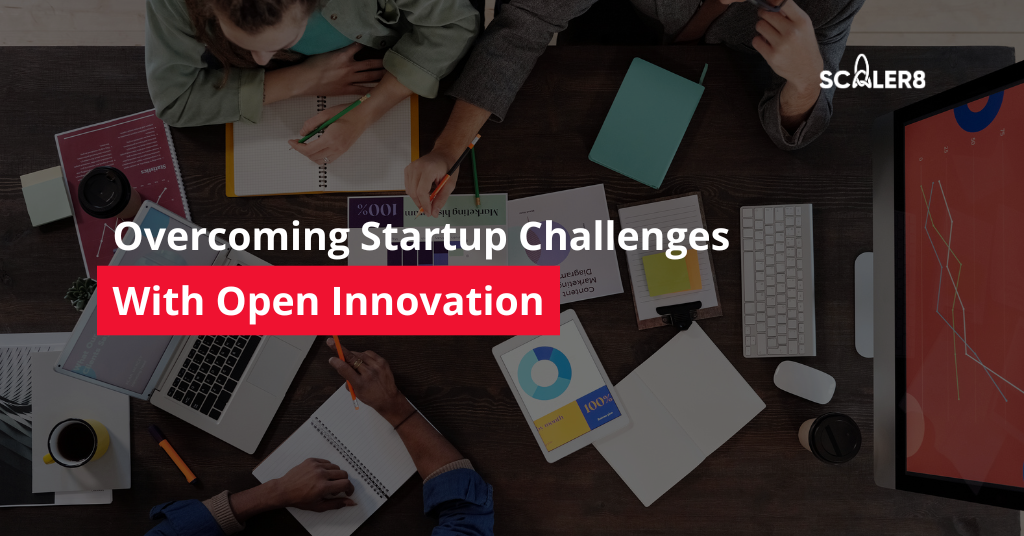Startups from the Scaler8 programme share how they are adapting to the challenges and opportunities presented by the coronavirus.
Back in February, Philipp von Pein, Co-founder and CEO of Attonics Systems, was gearing up for business expansion, expanding his spectrometry startup to Germany and establishing a European head office. Now, with the prospect of long-term global travel restrictions and many countries around the world still in lockdown, he splits his time between ensuring business continuity, keeping his existing customers happy and sourcing for new revenue streams.
Startups in wide-ranging sectors have been impacted by industry disruptions and funding slowdowns caused by COVID-19. Nonetheless, the worst economic downturn since the Great Depression presents a unique opportunity for deep tech startups to demonstrate the benefits of emerging technologies and hasten customer adoption. Six startup founders in the first batch of the Scaler8 programme share how the coronavirus has affected their business, and what deep tech startups can do to best position themselves for success in a post-coronavirus world.
The ultimate test
For startups focused on corporate or industrial digitalisation, the coronavirus is the greatest real-world test to prove their solution’s effectiveness and discover if they are ready for overseas expansion.
“COVID-19 has drastically affected all supply chains and we have felt its effects,” said Partha Ray, founder and CEO of dDriven. The startup works with Fortune 500 process manufacturing companies to leverage their Information Technology (IT) and Operational Technology (OT) data to reduce losses from operational inefficiencies. With governments encouraging workers to telecommute as far as possible, dDriven has found new market opportunities with their platform, UNLSH. The platform has been crucial in helping their clients retain visibility and control of their operations remotely through creating live digital twins of plant and business activities.
“Our customers have been using UNLSH to closely monitor all of their processes and assets to ensure that they can mitigate any possible risks to their supply chain. We want to do our part as well and offer our solutions at a highly discounted price point to industries that are severely hit by this crisis,” he added.
Similarly, the shift to remote corporate workplaces due to heightened safe-distancing measures has provided an extreme-scenario test case for regulatory technology firm RADICALi to evaluate the ease-of-use of their platform’s virtual onboarding and workflow tools. Hardesh Singh, CEO and co-founder of RADICALi, mentions that their clients have benefited from the intuitiveness of remote collaboration tools on MICA, their intelligent compliance assistant.
“Our clients’ compliance teams are able to easily track, understand and act on regulations to deliver much needed certainty to their businesses during this evolving time,” he said. With fast-evolving regulatory developments arising from COVID-19, the startup views it as an opportune time for companies to hasten adoption of smart compliance solutions to proactively manage these changes and minimise business disruptions and identify market opportunities.
Telemedicine in the spotlight
Experts predict that radical changes in healthcare resulting from COVID-19 will finally break down the regulatory and psychological barriers that have impeded the widespread adoption of telemedicine.
For TeleMedC CEO Para Segaram, having to remotely manage his team between Singapore and Australia has reinforced his belief in using telemedicine to solve healthcare problems. The startup provides low-cost immediate diagnostic solutions for point-of-care screening and virtual management of eye diseases through AI-based software coupled with portable hardware.
With physical resources strained and hospitals telling patients to stay away unless necessary, the healthcare industry has a strong urgency to implement remote diagnostic and care solutions. Segaram views this shift as an opportunity to implement an international expansion strategy for TeleMedC’s product. “This is a good opportunity for us to change people’s thoughts on digital preventive healthcare. We have had interest from clinicians in Singapore and Australia about implementing our solution in the near future. Our product minimises risk of healthcare professionals contracting the virus during eye examinations, and also reduces inefficiencies in healthcare resource allocation,” said Segaram.
Mitigating coronavirus risk also is a key concern for Nanyang Technological University (NTU) spin-off Biorithm, which has developed a wearable device that enables continuous and automated monitoring of fetal and maternal heart rates. According to Biorithm CEO Amrish Nair, clinicians seeking to reduce patient loads in hospitals are starting to embrace telehealth and its benefits, which may spark a healthcare revolution in the near-term.
“Pregnant women have always been classified as a vulnerable group and it is important to ensure they have continued access to care. Our solution allows clinicians to continue monitoring fetal health at the desired frequency, while keeping expecting mothers out of hospital. To help ease the healthcare burden, we are offering a ‘lite’ version of our solution for free to public healthcare providers during this time,” he said.
Pivoting to new sectors
The hospitality industry has been hard hit by the coronavirus, halting overseas market access plans. Even non-human ‘employees’ are on the chopping block. “We have many robots working in service and hospitality, which have been off-boarded in favour of maintaining human staff,” says Michael Sayre, CEO of Cognicept. Nonetheless, opportunities have surfaced in other critical areas for his robotic intervention technology and teleoperation services, where labour is disrupted or to ensure human safety.
“Our product facilitates the fast deployment of robotics in dynamic and unpredictable environments. We have received many enquiries about supporting UV disinfection robots, cleaning robots and delivery robots in quarantine zones,” he added. Going one step further, the startup has committed to donate their system to companies that are using robots to mitigate the effects of COVID-19. Currently, they are assisting several international firms who are tackling disinfection, building delivery, and last mile delivery applications, which makes for an advantageous market opportunity.
Staying home but thinking global
Over the past few months, National University of Singapore (NUS) spin-off Attonics Systems has seen demand from their existing customers for their high-performance ultra-compact spectrometers taper off as companies slash their R&D and product development budgets. As they look for new sources of funds to buffer this economic downturn, being confined to Singapore has not stopped the startup from connecting with potential investors and customers around the world as part of their market expansion strategy.
“We have been speaking to strategic investors and camera manufacturers who are looking at investing in high-potential intellectual property, so that they can best position themselves for the recovery cycle”, says co-founder and CEO Philipp von Pein. “The Scaler8 programme has been immensely helpful in connecting us to prospective corporate clients in Germany to pitch our products through virtual meetings,” he added.
Support for startups to seize opportunities
It is the right time for emerging technologies to shine, as organisations worldwide are eager to embrace new solutions that can improve their business resilience or bolster market leadership. Hence, beyond ensuring their startup’s survival, founders should capitalise on market opportunities to promote their disruptive deep tech innovations on a global level.
Singapore’s startups can continue to lean on support from Enterprise Singapore and its Global Innovation Alliance (GIA) network as an international expansion strategy to enter high-potential overseas markets. “It is heartening to see deep tech startups in Singapore continuing their pursuit for business innovation and thinking global during these challenging times. With the support from German Entrepreneurship Asia and our Global Innovation Alliance partners, we will continue to help Singapore-based startups identify growth areas and seize new opportunities in Germany and Europe. This way, startups can ride the wave of industry transformation and position themselves as market leaders for the recovery,” said Jonathan Lim, Director of Global Innovation Network at Enterprise Singapore.
From March to May, Scaler8’s first batch of startups have been participating in virtual workshops and 1-to-1 expert sessions to build a competitive international expansion strategy. With the coronavirus easing in most European countries, the startups look forward to spending one week in Germany during the fall to immerse in the market and meet prospective customers, partners and key players in the German innovation ecosystem.
Through this challenging period and beyond, Scaler8 remains committed to support companies in starting a business in Germany through adapting our programme delivery and strengthening ties with various German stakeholders. As shared by Claus Karthe, co-founder and CEO German Entrepreneurship Asia, “Local startups and small-medium enterprises should leverage the market expansion programme Scaler8 to deliver their solutions to the German market. We help build deep industry understanding and connections with the right partners, even virtually, to support local startups and small-medium enterprises especially in these difficult times.”
One thing is certain – it will be a different world after the coronavirus. The 2008–2009 financial crisis provided fertile ground for the emergence of a generation of unicorn companies. Several MedTech startups in Singapore have already risen to the occasion to rapidly iterate, manufacture and scale solutions to contain and fight the war against COVID-19. Similarly, deep tech startups in other sectors are well-placed to take the lead in driving global industry transformation now and beyond.




